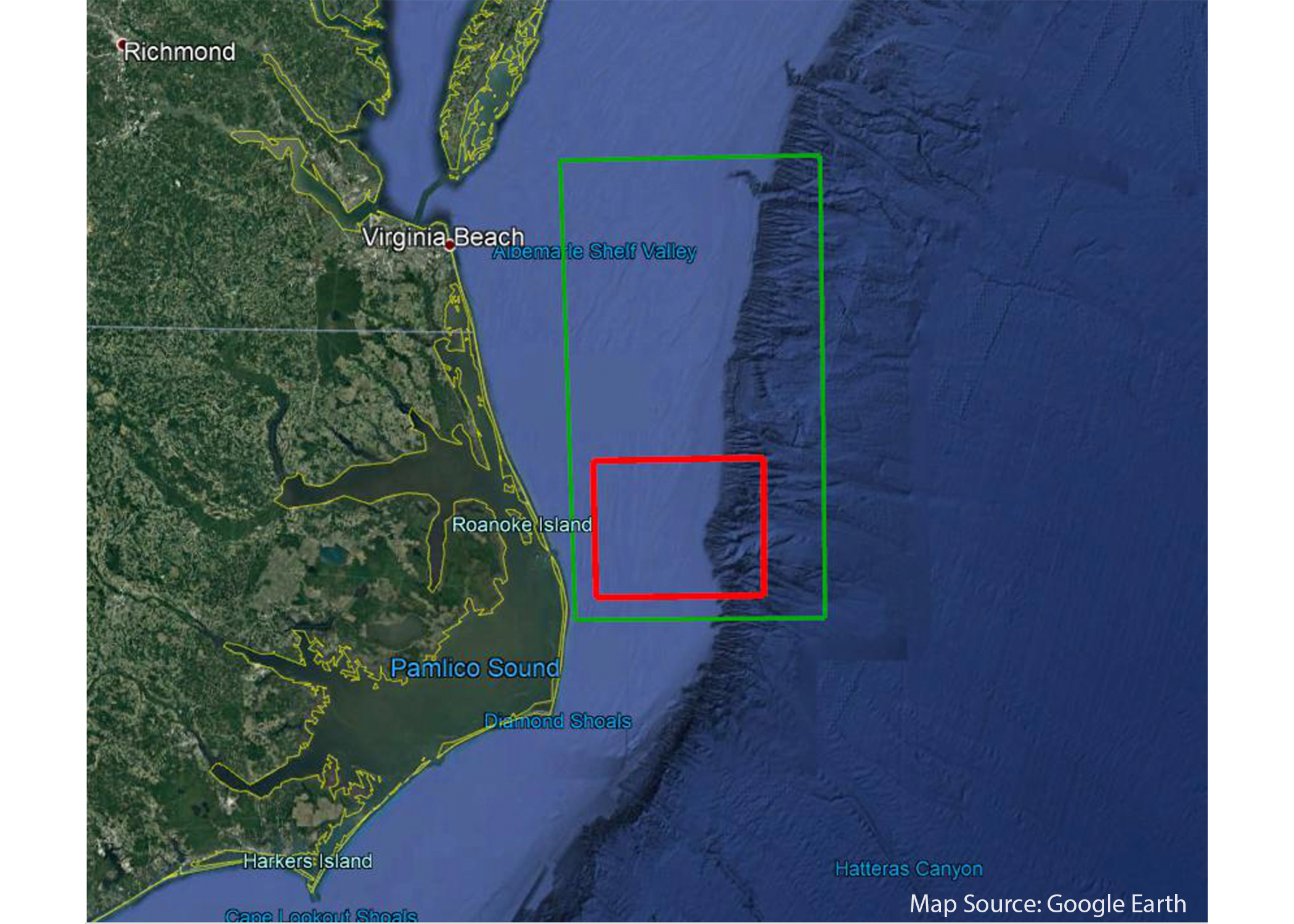Posts Tagged ‘National Science Foundation’
Position Opening: NSF OOI Program Director
Scoping the New Pioneer Array in the Southern Mid-Atlantic Bight
A very engaged group of participants spent the week of June 21st thinking about how to optimize the Pioneer Array for its relocation to the southern Mid-Atlantic Bight (MAB) in 2024. The five-day Innovations Lab, sponsored by the National Science Foundation (NSF) was led by the OOIFB (Ocean Observatories Initiative Facilities Board), a talented team of “Sparks”, Knowinnovation, Inc. (KI), and expertly supported by the OOI Facility. The group identified a range of representative interdisciplinary science questions that can be addressed using the Pioneer Array within the MAB and proposed optimum locations and potential configurations for the array.
Science question topics included air-sea interactions; the influence of estuarine plumes and the Gulf Stream on cross-shelf and shelf-slope exchanges and their impacts on ocean chemistry and biology; benthic-pelagic coupling; and canyon processes. Participants converged on a general region (see boxes in Figure 1 below) that would best address the science questions.
[media-caption path="https://oceanobservatories.org/wp-content/uploads/2021/06/Google-earth-map.png" link="#"]Figure 1. Southern MAB Pioneer Array regions. The red box indicates the region where moorings would be located and the larger green box indicates the region where mobile assets (gliders and AUVs) would operate.[/media-caption]
“The Innovations Lab was very successful, and we really appreciate the community sharing their innovative ideas with us in this essential first step,” said Kendra Daly, chair of the OOIFB. “The Innovations Lab provides an excellent start to a long process of fleshing out the details to ensure that the array provides data to investigate a broad range of interdisciplinary science questions, while also being robust enough to weather the challenging environmental conditions in the Mid-Atlantic Bight.”
The OOIFB will continue to engage with the OOI community to refine the array’s design for implementation over the next two years. The Innovations Lab showed that there is strong community interest in coastal science, the potential for new partnerships, and excitement about implementing the Pioneer Array in its new location.
Read More
NSF’s Division of Ocean Sciences to Provide PostDoc Fellowships in 2021
The National Science Foundation’s Ocean Science Division (OCE) announced plans to launch a postdoctoral research fellowship program later this fall. Assistant Director for Geosciences William E. Easterling noted that such fellowship programs often serve as launching pads for successful careers. He also encouraged applications that incorporate existing data offered by NSF-funded program such as the Ocean Observatories Initiative.
OCE anticipates awarding about 15 postdoctoral fellowships that will start in mid-2021 or later. Selected fellows will affiliate with a research institution and conduct research on topics supported by OCE.
The Ocean Observatories Initiative offers potential applicants the opportunity to avail themselves of targeted and long-term ocean data and provides useful resources that can aid in the development of proposals that incorporate OOI data. OOI, for example, offers webinars on how to add instruments or platforms to its infrastructure. Opportunities for ship-time experiences, as well as possibilities to modify or add to existing OOI sampling to help answer research questions. OOI also offers tools to incorporate OOI data into research, including a recently launched Data Explorer tool that makes it easy to download and visualize datasets and customize data views.
We will keep an eye out for further information about this OCE program. In the meantime, we encourage you to contact OOI’s HelpDesk to begin to discuss and explore the many opportunities that exist to integrate OOI data into a fellowship application.
Read More


